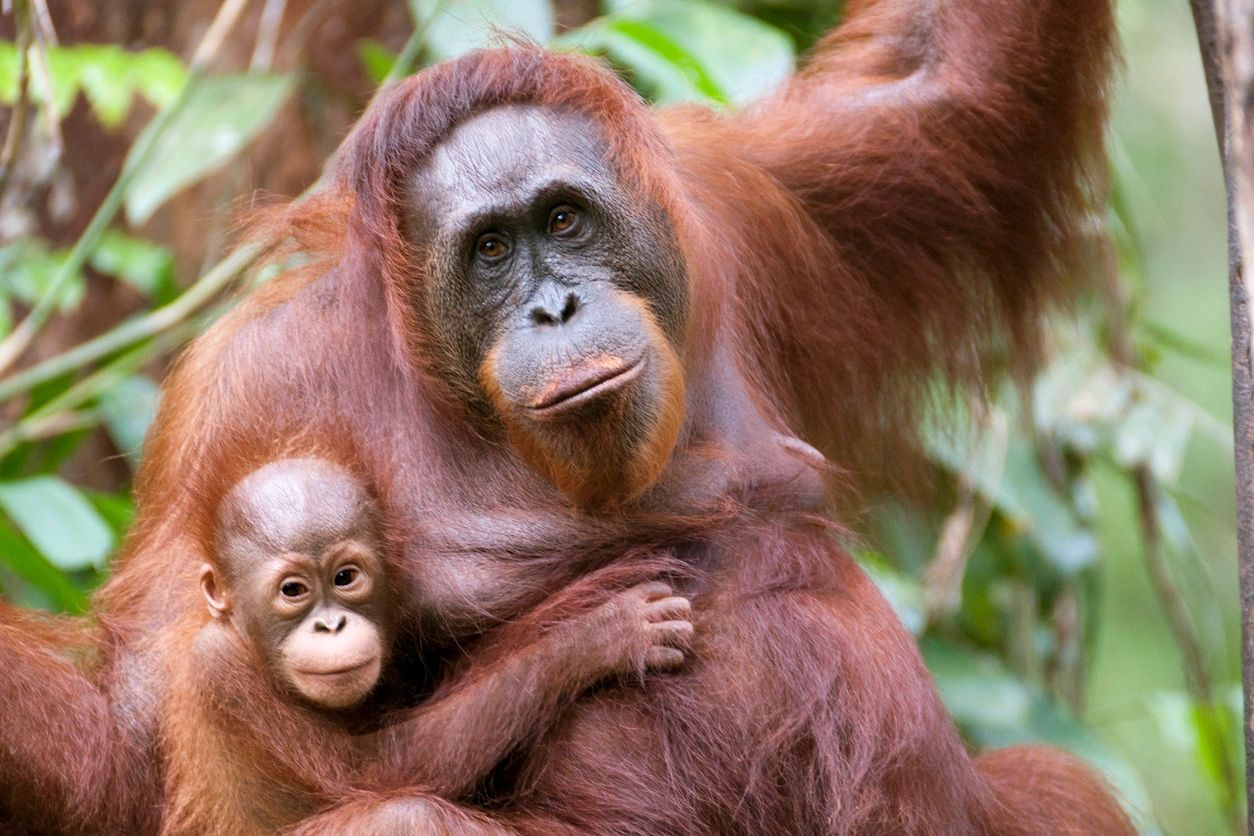
Palm Oil: The Hidden Problems Behind It
I always dreamed of seeing orangutans in the wild. I knew that they are probably the most intelligent of all the great apes because of their ability to innovate and problem-solve. However, problems with palm oil production greatly threaten their habitat. In 2007, I finally scraped together the money to travel to Borneo. Little did I know, at 53 years old, I would find my passion.
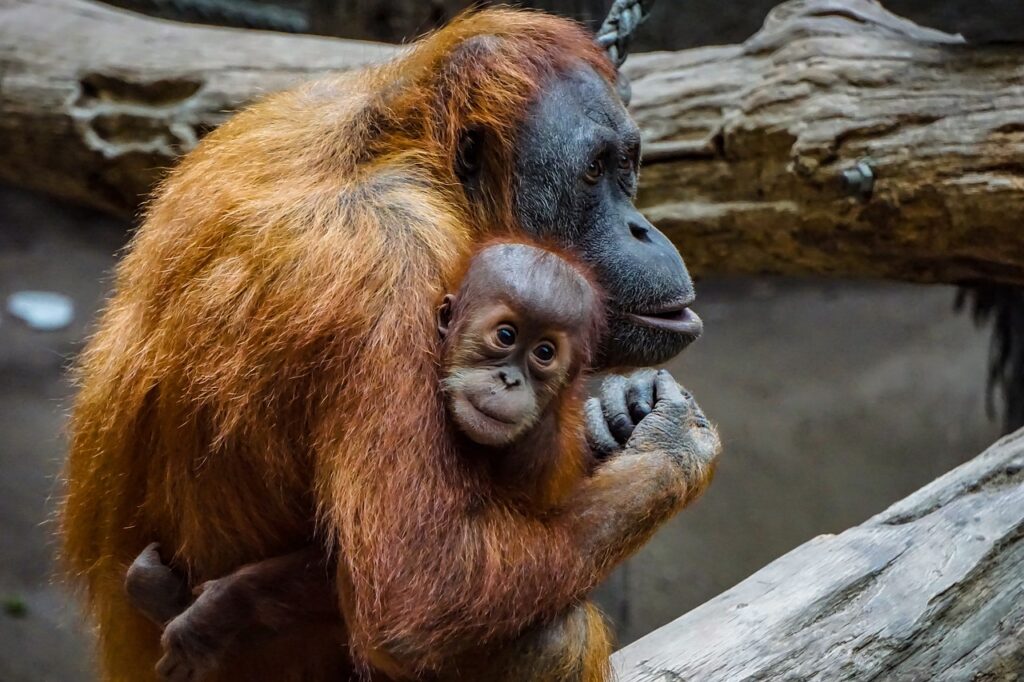
My Journey Begins
When I landed in Jakarta, beginning my journey to Borneo, a suffocating haze greeted me. My eyes burned, my throat grew raspy, and smoke clung to my clothing and hair. I quickly learned the cause: illegal fires, set intentionally to clear land for palm oil plantations. Until that moment, I had never even heard of palm oil.
So, what exactly is palm oil, and how does it play a part in climate change and environmental damage?
What the heck is Palm Oil?
Palm oil is a type of vegetable oil that comes from the fruit of the West African oil palm tree. It’s used in lots of different products, from snack foods to soaps and lotions, and even in biofuels. In fact, you can find palm oil in about half the products on store shelves.
Most palm oil is grown in Indonesia and Malaysia, but now it’s also being produced in tropical areas of South America and Africa. While palm oil is useful, its production has serious effects on the environment. To grow more oil palms, companies clear forests, which destroys the homes of endangered animals like orangutans.
In addition, growing and processing palm oil releases greenhouse gases, which contribute to climate change. The farming methods used also lead to soil and water pollution and can cause soil erosion. This makes palm oil production a big environmental problem that affects both animals and ecosystems.
My Life-Changing Journey Continues
We traveled to Tanjung Puting National Park in Borneo, taking two more flights and a slow journey on a traditional river boat called a ‘klotok.’ I quickly set aside thoughts of Jakarta’s palm oil and poor air quality (or so I believed) and immersed myself in the natural beauty of the forest along the pristine black waters of the Sekonyer River.

On my river trip, I saw so much amazing wildlife and nature. There were wild orangutans, gibbons, wild boars, macaques, hundreds of birds, and even more. My favorite sight was watching proboscis monkeys—sporting big noses, potbellies, and striking red-brown fur—leaping from tree to tree, bringing the banks to life. My heart broke to learn that these spectacular monkeys are vanishing rapidly because their habitat is disappearing.
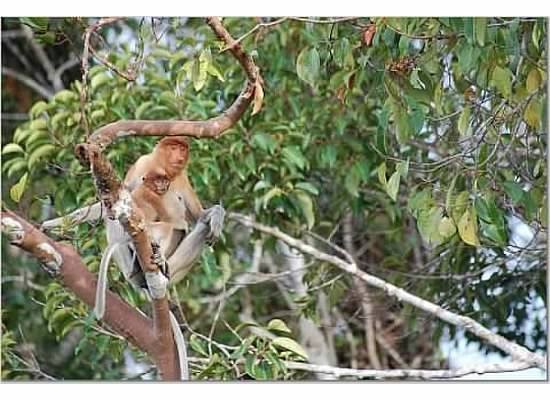
From Pristine River Banks to Environmental Destruction
I also saw large areas of what used to be beautiful rainforests, now turned into empty, dead landscapes with rivers that looked lifeless. The saddest part when I visited care centers. I saw orphaned baby orangutans, because their mothers were killed on palm oil farms, where they’re seen as pests. I learned that the homes of these unique animals are disappearing fast because of farming practices that burn down large parts of the forest. This is just one of the major problems with producing palm oil.
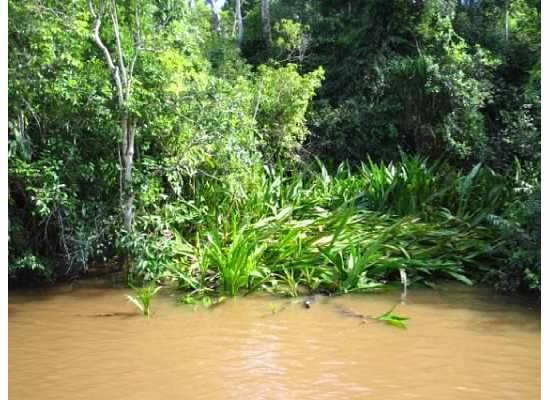
Soon we came to a spot where the river split into a “Y” shape. I noticed a sharp line between the black water on one side and the murky brown water on the other, which looked like coffee with cream. Our guide explained that this pollution was caused by chemicals running off from logging, mining, and palm oil farms farther up the river. There it was again—that word “palm oil.”
Meeting Orangutans Face-to-Face
When we arrived at the dock of Camp Leakey, Siswi, one of the resident orangutans, greeted us. She and several other orangutans ran to hold hands with Dr. Birute Galdikas, who established the camp back in 1971. Siswi was a bit of a troublemaker, immediately getting into a guest’s backpack and breaking into the lunchroom. I watched in fascination to see her mix herself a drink (non-alcoholic) with hot sauce and water. Siswi showed her affection by holding our hands and ankles. I quickly fell in love with these creatures, who appear so different physically from us but are so similar to humans.
During the trip, I also visited the Orangutan Care Center, where local people bring in orangutans that have been rescued from captivity, are sick or injured, or have lost their parents. Not long after I arrived, a women brought in an adorable baby orangutan. I asked what had happened, and one of the staff told me that many of these young orangutans are “palm oil orphans.” The fast-growing palm oil industry in Indonesia destroyed their forest homes and killed their parents. Seeing all this made me realize just how serious the issues with palm oil production are.
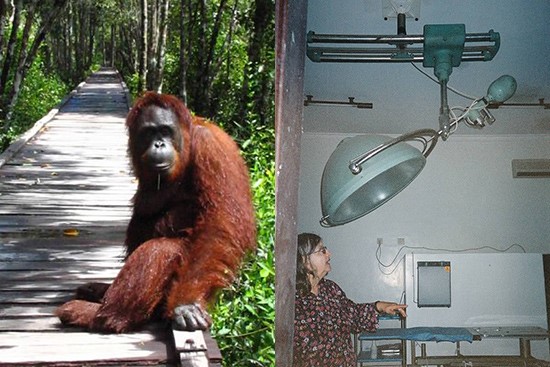
(Image credit: Susan Callery)
My Life-Changing Decision
I returned home, determined to do something about palm oil. At 53, I enrolled in graduate school in environmental policy and management. I joined the board of a local non-profit organization, Orang Utan Republik Foundation, dedicated to protecting orangutans in the wild. As a Non-Governmental Organization, we joined the Roundtable on Sustainable Palm Oil, which promotes palm oil production practices that help reduce deforestation, preserve biodiversity, respect the livelihoods of rural communities and ensures that no new primary forest or other high conservation value areas are sacrificed for palm oil plantations.
Stay tuned for more information on palm oil and its impact on orangutans and many other species. In the meantime, please remember to check your labels for “palm oil”, or one many other names. Before you buy, think about all of the problems with palm oil production I’ve talked about and make wise choices for the sake of our furry red relatives.
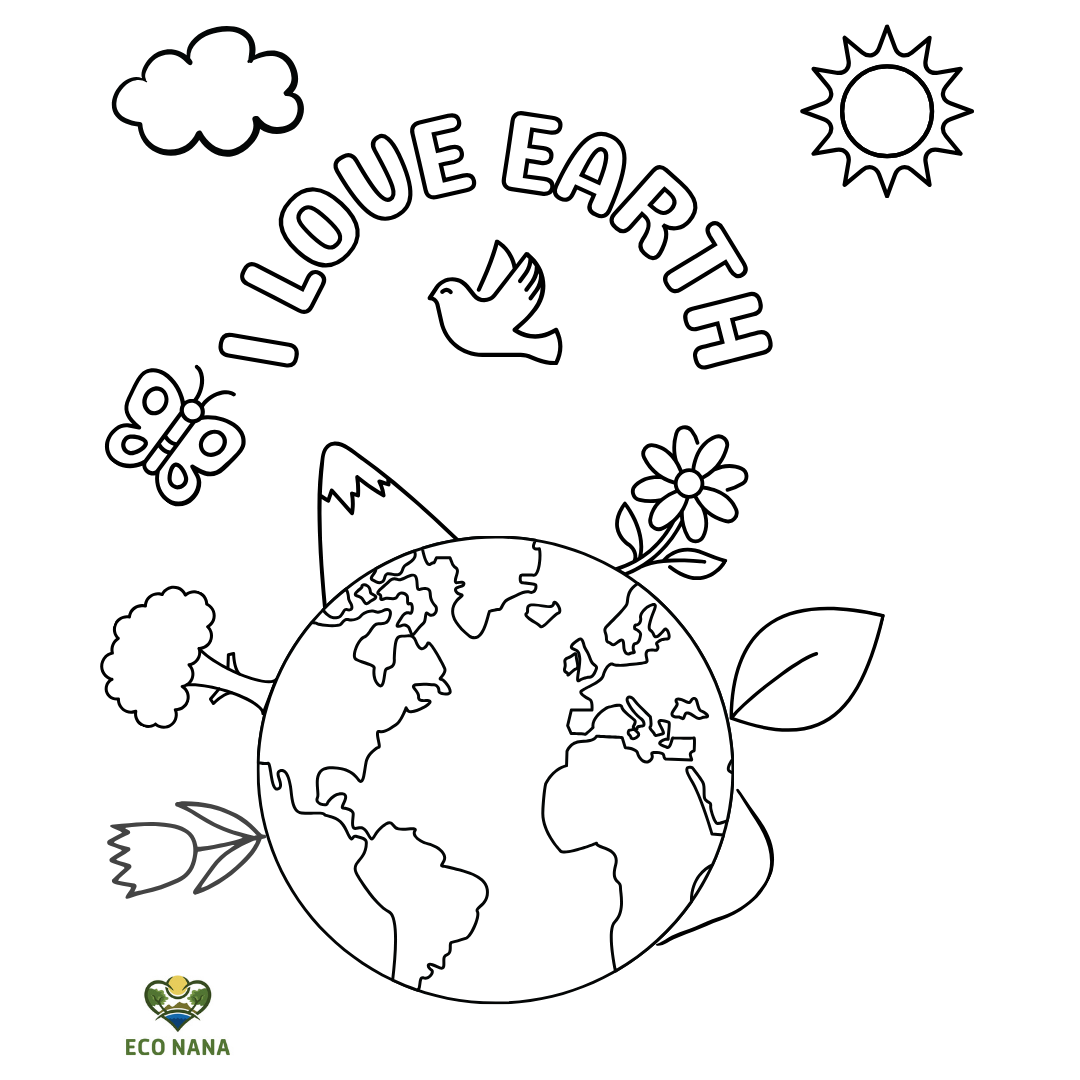
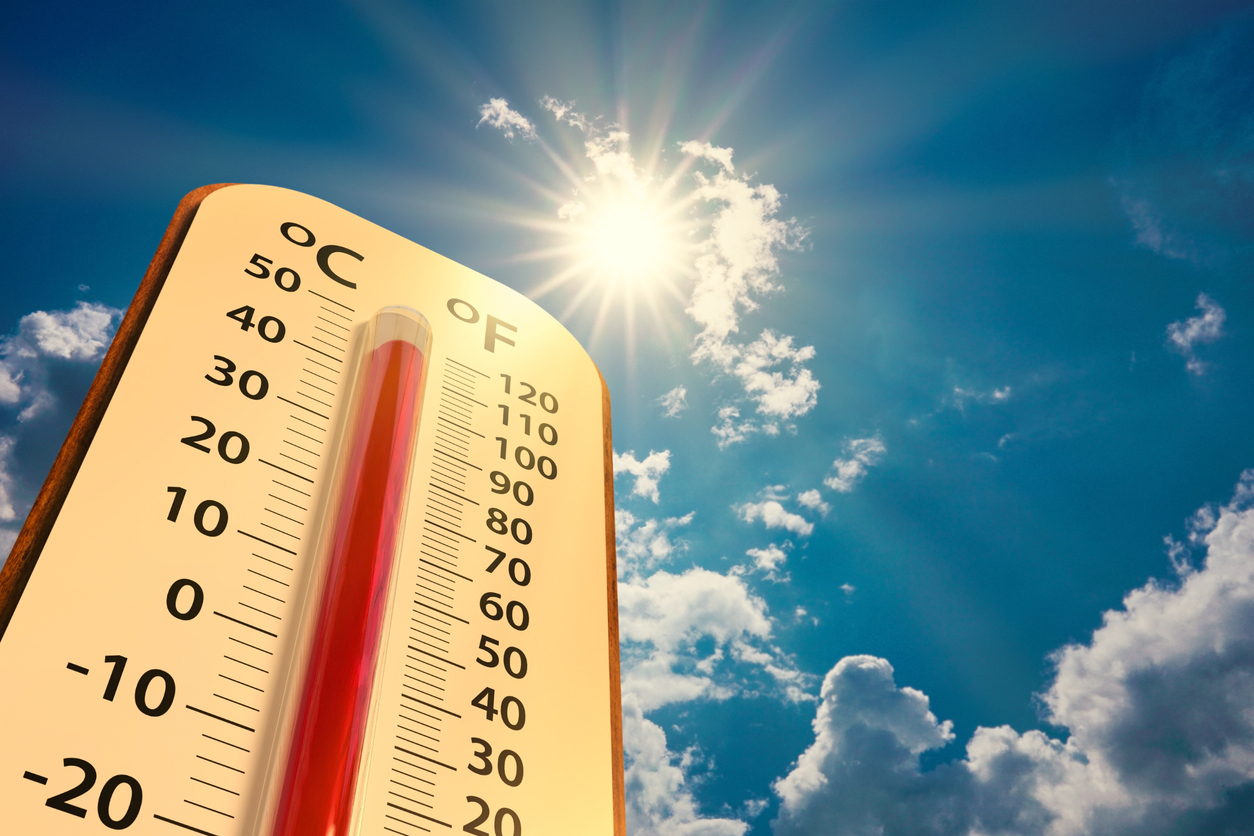

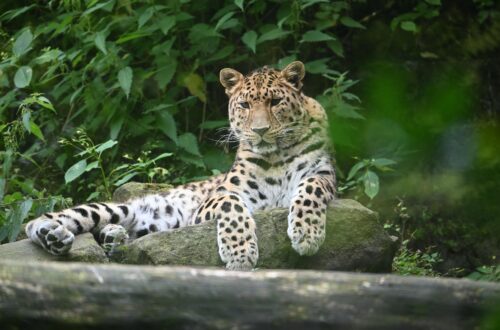
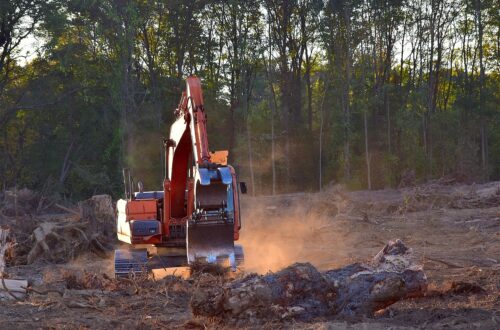
One Comment
Pingback: